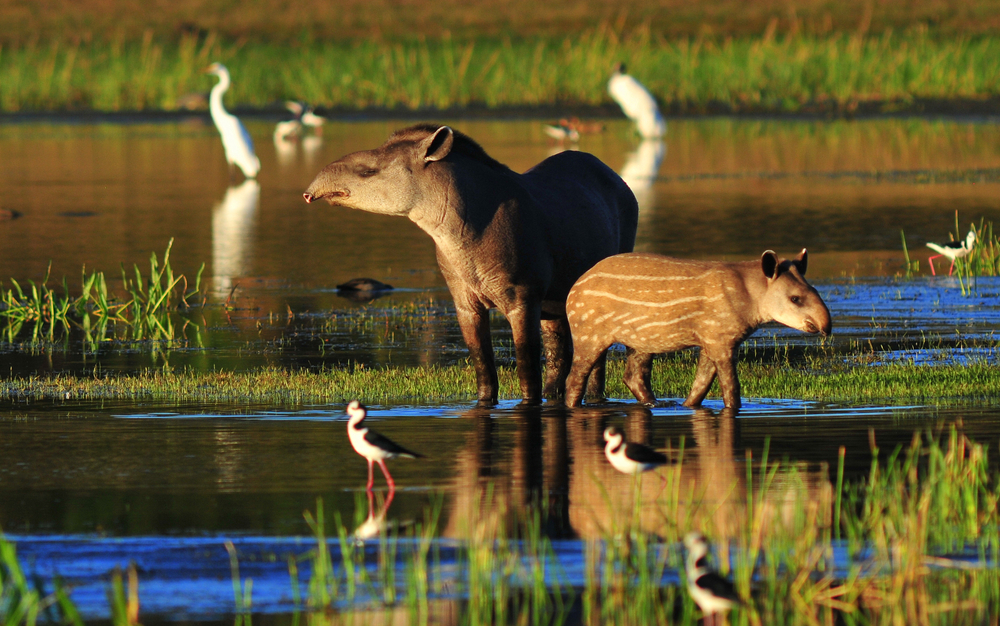The Atlantic Forest, which once covered more than a million square kilometers along the eastern coast of Brazil and Argentina, has been steadily sliced and diced by loggers, plantation owners, and economic development. Trees now cover just 7% to 15% of the forest’s former area, mostly in shrinking fragments between expanding cities. But it remains a globally important ecosystem due to its role in carbon sequestration, water management and habitat provision to a wide range of species including capybara, armadillos, toucans, and capuchins.
The wild tapir was once a crucial member of this ecosystem, helping to spread and disperse seeds, but had been eradicated from the Rio de Janeiro state in 2014. But now, just as with wolves in Yellowstone and beavers in the UK, the tapir is being reintroduced to accelerate restoration of the degraded habitat.
Since 2017, four captive-bred males and three females have been put into the forest. Recently, for the first time in more than a century, a wild tapir was born in the Atlantic Forest. The images of the pig-like calf with a characteristic prehensile snout were captured by a camera trap in the Guapiaçu Ecological Reserve and released in Brazilian media outlets.
Researchers believed the calf was born in January and a second may be on its way because another adult female appears to be pregnant. Maron Galliez, a professor of biology at the Federal Institute of Education, Science, and Technology of Rio de Janeiro, said this was a milestone for the reintroduction project, which has been eight years in planning and implementation. Reintroducing a precious species back to its old habitat to save degraded lands—now that’s a solution we can get behind.












